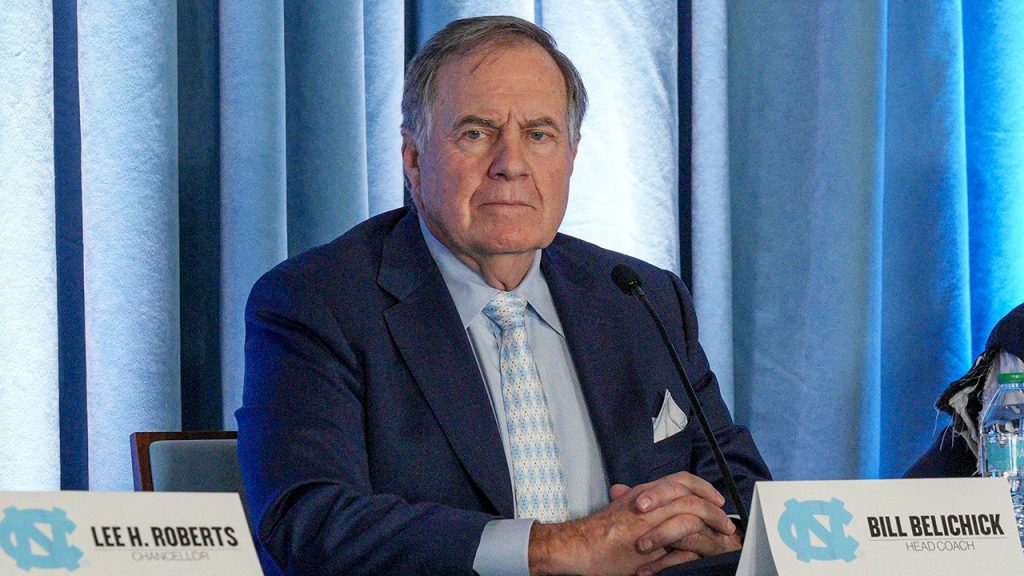Bill Belichick, the legendary NFL coach with six Super Bowl titles to his name, finds himself in a new chapter of his career, leading the North Carolina Tar Heels football team. While his former team, the New England Patriots, grapples with the aftermath of a disappointing season and the dismissal of his hand-picked successor, Jerod Mayo, Belichick remains focused on building his program at Chapel Hill. During a recent interview, Belichick acknowledged the Patriots’ situation but emphasized his detachment from the decision-making process, stating that the ownership group holds the responsibility for personnel choices. He reiterated his lack of involvement, highlighting that he hasn’t been consulted by the Patriots regarding their coaching search. Belichick’s primary concern lies with recruiting and shaping his new team, a stark contrast to the turmoil brewing in Foxborough.
The Patriots’ decision to fire Jerod Mayo after just one season as head coach has sent ripples through the organization. Mayo, a former Patriots linebacker and a member of Belichick’s coaching staff, was seen as the heir apparent, hand-picked by owner Robert Kraft. However, the team’s dismal 4-13 record sealed Mayo’s fate, prompting Kraft to take responsibility for the situation. Kraft admitted placing Mayo in an “untenable situation,” acknowledging that the young coach needed more time to develop before assuming the head coaching role. This admission underscores the pressure and expectations that accompany the Patriots’ legacy, a legacy largely shaped by Belichick’s two-decade tenure.
Kraft’s public acknowledgement of his misjudgment highlights the complexities of leadership transitions, particularly in high-stakes environments like professional sports. The Patriots’ owner expressed regret for thrusting Mayo into the spotlight prematurely, recognizing that the young coach’s potential was stifled by the circumstances. This candid assessment reflects a degree of self-awareness and a willingness to learn from mistakes, a crucial attribute for any leader. The Patriots’ search for a new head coach now begins anew, with the shadow of Belichick’s success looming large.
Meanwhile, Belichick embarks on his collegiate coaching journey, a significant departure from the professional arena he dominated for so long. The transition to college football presents unique challenges and opportunities for the veteran coach. Building a program from the ground up requires a different approach than managing established NFL talent. Recruiting, player development, and fostering a collegiate culture will be key aspects of Belichick’s new role. The spotlight on his performance at North Carolina will be intense, as the football world watches to see if his methods translate to the college game.
Belichick’s legacy in the NFL is undeniable, marked by unwavering discipline, strategic brilliance, and an unmatched record of success. His coaching philosophy, characterized by meticulous preparation and a focus on fundamentals, has shaped generations of players and coaches. The Patriots’ dynasty, built under his leadership, stands as a testament to his unwavering commitment to excellence. Now, at North Carolina, he has the chance to forge a new path, leaving his mark on a different level of the sport.
The contrast between Belichick’s new beginning and the Patriots’ struggles underscores the cyclical nature of sports. While his former team searches for stability and a return to glory, Belichick embraces the challenge of building something new. The future holds intriguing possibilities for both the coach and his former franchise. The Patriots’ quest for a new leader and Belichick’s foray into college football will be closely watched narratives in the coming years. The intersection of these storylines provides a compelling backdrop to the ever-evolving landscape of American football.


